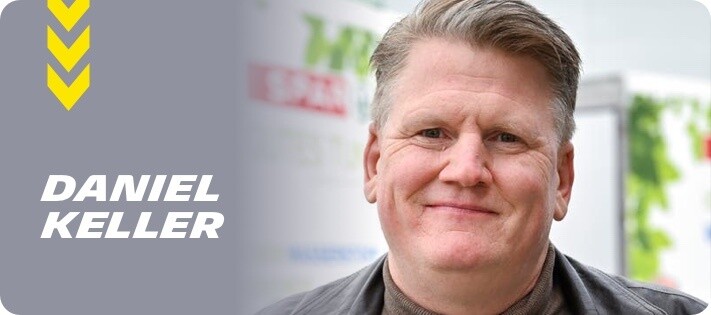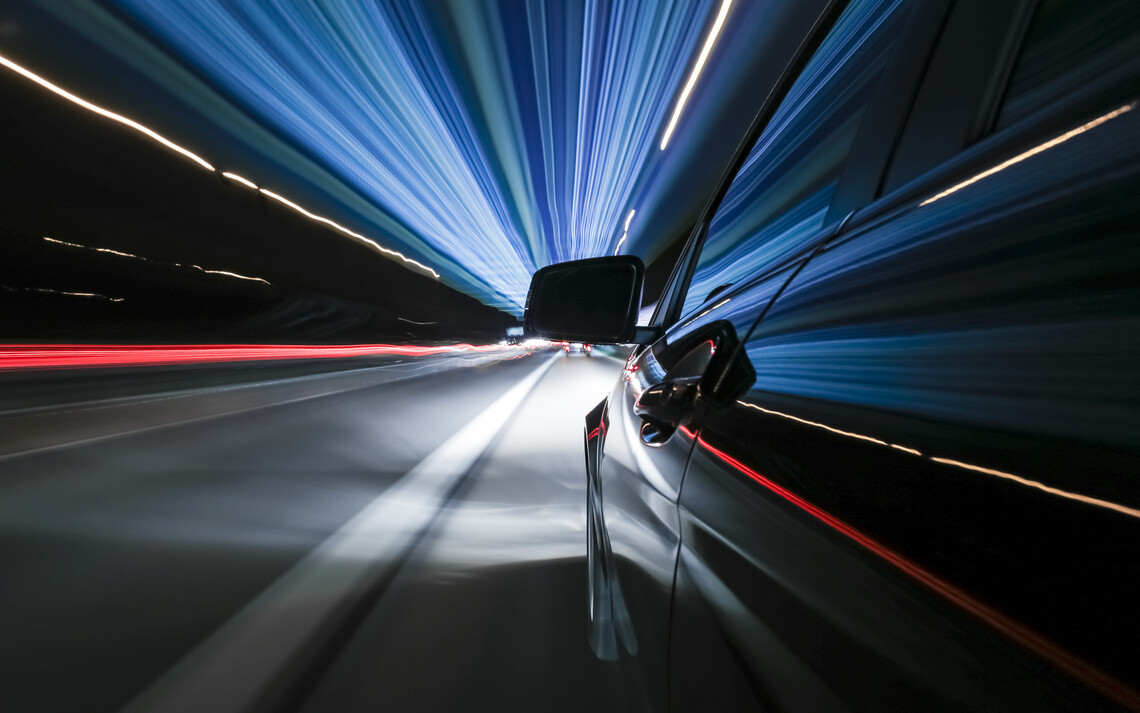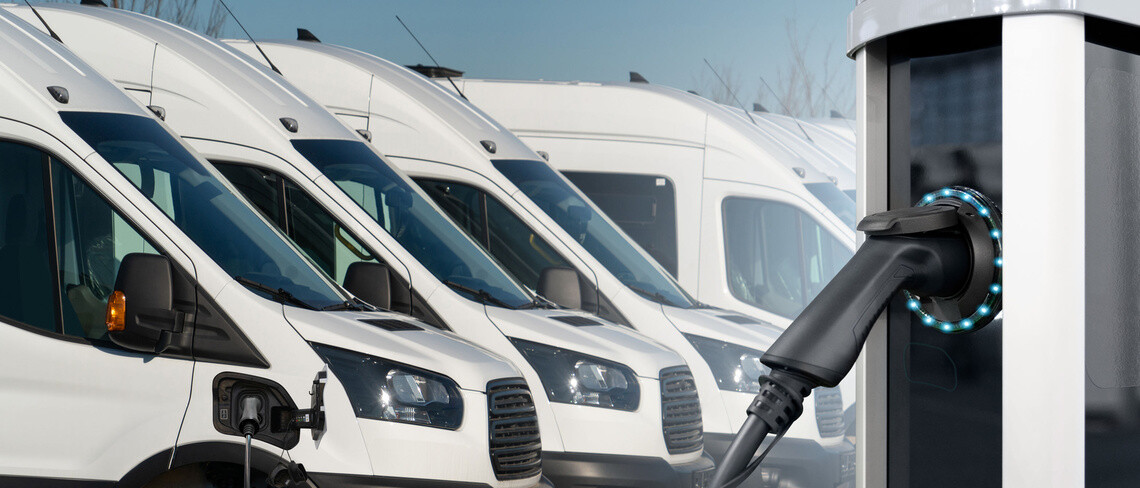
post spotlight hydrogen herobanner
Daniel Keller, COO at Hyundai Hydrogen Mobility AG, is not just selling a truck, he’s selling the idea of a sustainable future for the heavy duty trucking industry. Hyundai launched the world’s first mass produced heavy duty hydrogen truck together with an ecosystem to support this launch in Switzerland. Today, Daniel is spreading his message across the globe: The future is zero-emissions. The future is hydrogen.

post spotlight hydrogen daniel keller
Daniel Keller, Chief Operating Officer (COO) of Hyundai Hydrogen Mobility AG in Switzerland
What is hydrogen power and how does it work?
Daniel Keller: We use electricity to split up the atoms in water, which gives us two parts hydrogen and one part pure oxygen. The hydrogen is compressed, stored then transformed back into electricity within the truck’s fuel cell. The fuel cell is really the heart of the technology, or what I like to call the “magic sauce.” It allows us to use green hydrogen, which is produced entirely from renewable energy, and create a carbon-free transport system. The only thing that comes out of the tailpipe is water vapor ౼ it’s so clean you could even drink it!
Running a zero-emissions fleet sounds incredible! Why isn’t everyone using this technology?
D.K.: The big challenge is that we can’t just sell a hydrogen powered truck ౼ we need to create an entire ecosystem. First, we need to produce green hydrogen, then distribute it to hydrogen refueling stations (HRS) where heavy duty trucks can fill up. But tell me, how many hydrogen trucks have you seen in your life? If you’re like the vast majority of people, probably zero.
So it’s the classic chicken and the egg scenario. Do you start building an HRS network before you sell hydrogen trucks? Or start rolling out hydrogen trucks before they have a place to fill up? In Switzerland, we’re building a hydrogen ecosystem. We started a year ago with one official refilling station; today we have seven or eight ౼ the number grows every couple of weeks. Now that we have the trucks, it makes sense to build refueling stations and now that we have refueling stations, we can sell trucks. It all comes together like a big puzzle.
Every day we are learning something new and doing something for the first time as well as our partners.
Daniel Keller, COO at Hyundai Hydrogen Mobility AG
Why did you decide to launch the pilot in Switzerland?
D.K.: In 2001, Switzerland implemented a CO2 emissions tax based on truck weight and kilometers driven. Hydrogen vehicles are exempt from this tax, so cost wise, piloting our ecosystem in Switzerland made sense because it gave us a pricing advantage over diesel engines. You have to start where you have a sweet spot. Now that we’ve proved that this system works, we can roll it out into other European markets. We want to change the way the world does heavy duty transport, and we can’t do that just from Switzerland.
That sounds like a lofty goal ౼ is it possible?
D.K.: Let me explain this with numbers. If you want to run a HRS economically, you would need 700 cars to fill up on a regular basis. There aren’t even 700 hydrogen vehicles in all of Switzerland! But, if heavy duty trucks would fill up at that same HRS, you’d only need 15 trucks to fill up on a regular basis. That means that trucks can pave the way to a hydrogen mobility society for everyone!
But all this takes time because we’re starting from scratch. Every day we are learning something new and doing something for the first time. We count on our partners in the Eco System and we are working very close together with them on a daily base.
Taking that into consideration, realistically speaking, when will buying a hydrogen truck become a serious option for the average fleet owner?
D.K.: Right now it does already makes sense for the average fleet owner in Switzerland because the ecosystem is already in place. In other countries, we need the infrastructure to be build as well. Most likely large fleets will pave the way then small companies will jump in over the next couple of years. There won’t be a big bang and ౼ BOOM, the entire industry is 100% hydrogen. It will take at least 10 years to transform completely. Also, we can’t overlook the financial aspect. Of course everyone loves to be green, but at the end of the day, these advancements have to make economical sense. We’ll need to strategically sell 30-100 trucks in a specific area to create a feasible business case to build HRS and the entire infrastructure. The networks need to be build up in advance, hand in hand with all stakeholders to be able to enter the hydrogen mobile future ౼ so the actual network can also be used by our competitors. That is how much we believe in the future of hydrogen.
*All figures and values indicated are from an interview by Daniel Keller, COO at Hyundai Trucks, on 04 Mai 2021.

post spotlight hydrogen title
Battery Electric Vehicles
Hydrogen Fuel Cell Vehicles
Natural Gas Vehicle (NGV)
Biodiesel Vehicle

post spotlight hydrogen table bev

post spotlight hydrogen table hydrogen

post spotlight hydrogen table ngv
What is a NGV? A vehicle with an internal combustion engine that runs on compressed natural gas (CNG) or liquefied natural gas (LNG)

post spotlight hydrogen table biodiesel
What is a biodiesel vehicle? A vehicle with a diesel engine that runs on renewable, plant-based fuel.

post spotlight hydrogen highlight
The MICHELIN X® MULTI ENERGY range is the optimal solution for electric trucks.
Need tyres to optimise your vehicle with an outstanding balance between Energetic Efficiency / Longevity under high torques / Grip?
The X® Multi Energy Z & D tyres make the “come to reality” of FCEV easier than never:
- Improved rolling resistance - 0,7 kg/t (-11%) vs X Multi on the tractor
- Outstanding mileage
- Strong casing endurance
- All season grip: 3PMSF marking

gettyimages 930571046
car going fast on a road by night







